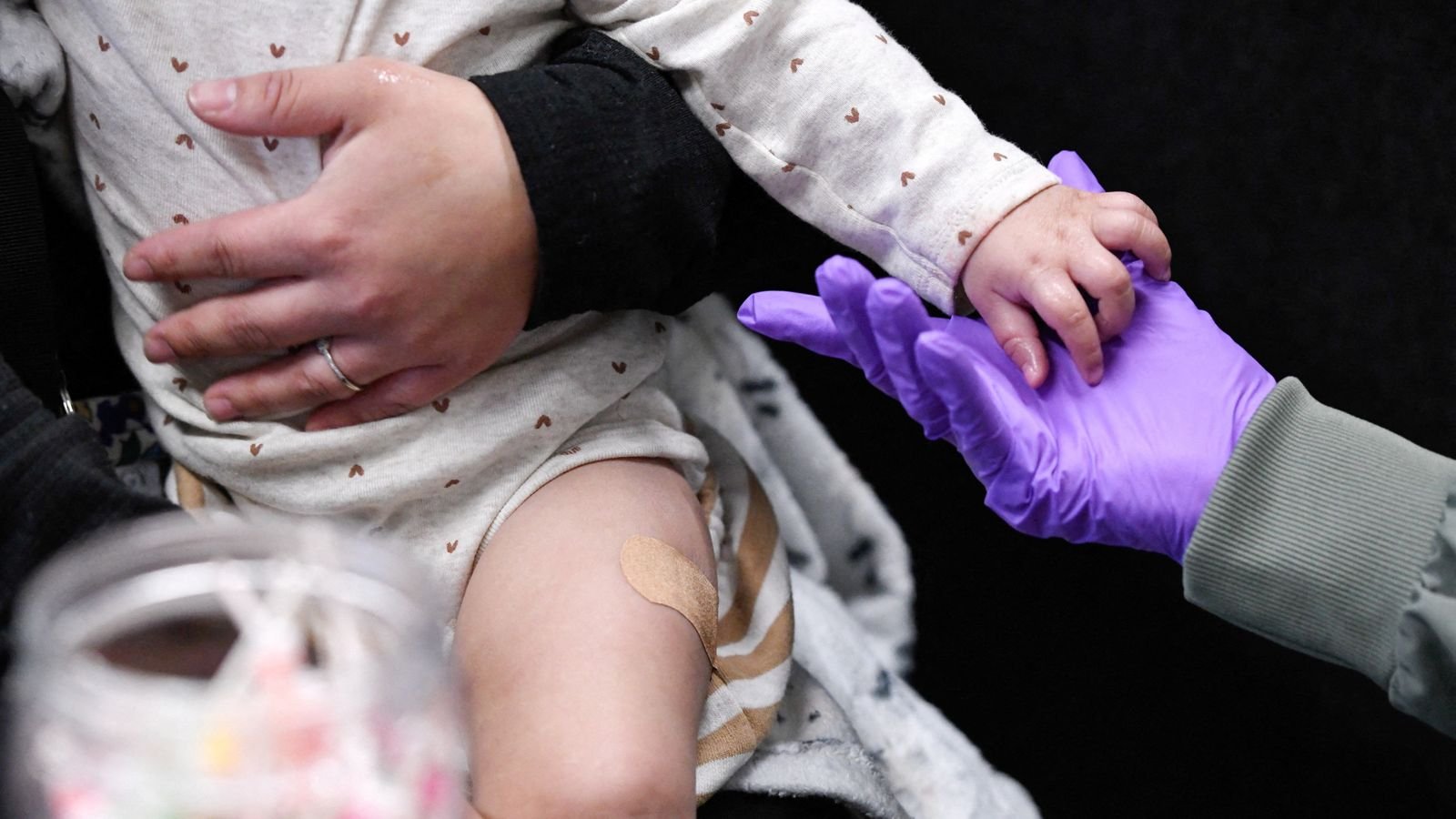A Liverpool City Council official has urged the public to be aware of the symptoms of measles after a child died from the disease. Speaking on The UK Tonight with Sarah-Jane Mee, director of public health for Liverpool City Council, Professor Matthew Ashton, said he wanted to raise awareness of the virus.
It comes after a child died at the city’s Alder Hey Children’s Hospital after becoming ill with measles and other health problems. Mr Ashton said that measles was "circulating" in the community, with 17 cases recorded at Alder Hey since the start of June – which he said "is a worry for us".
"It’s a really nasty virus," he added. "No matter who you are, if you’re not protected, it can do you harm."
Earlier on Monday, chairman of the Local Government Association’s community wellbeing board, councillor David Fothergill, said there was "an urgent need to address falling immunisation rates".
"These gaps have contributed to 529 confirmed measles cases in England so far in 2025," he said, "with 68% occurring in children under the age of 10."
Speaking to Sky News, Mr Ashton said: "Vaccination rates have been declining nationally for the last decade… In Liverpool, we’re down below 74%.
"Nationally, it’s a bit higher than that, but it’s still far too low. And the trouble is then, when you have unexposed populations or unprotected populations, the potential for measles going rogue is very high."
Mr Ashton said vaccination rates have been declining nationally for the last decade and that the World Health Organisation (WHO) recommends 95% vaccination levels to reach herd immunity.
Read more:
Cases double to highest level in nearly three decades
What’s behind the decline in measles vaccine rates?
Mr Ashton noted "there’s lots of reasons why vaccination rates have dropped," citing "fatigue" from the COVID pandemic and "disinformation," but added: "I do think it’s more complicated than that.
"I think we have to recognise that life for our communities has got significantly harder over the last ten years, and people are working really hard to make sure they can still pay the bills, put food on the table, look after loved ones.
"Sometimes routine health care appointments are just not top of the list of things to do."
What are the symptoms of measles?
The first symptoms of measles include:
• A high temperature
• A runny or blocked nose
• Sneezing
• A cough
• Red, sore or watery eyes
Cold-like symptoms are followed a few days later by a rash, which starts on the face and behind the ears, before it spreads. The spots are usually raised and can join together to form blotchy patches which are not usually itchy. Some people may get small spots in their mouth too.
What should you do if you think your child has measles?
Ask for an urgent GP appointment or call 111 if you think your child has measles. If your child has been vaccinated, it is very unlikely they have measles. You should not go to the doctor without calling ahead, as measles is very infectious. If your child is diagnosed with measles by a doctor, make sure they avoid close contact with babies and anyone who is pregnant or has a weakened immune system.
The public health director said that while "people assume it’s an old disease or it’s one that’s gone away… it couldn’t be further from the case".
He noted that one case of measles can infect up to 15 people, and urged people that if they think they have symptoms, call their GP or 111 – and do not go to A&E.

